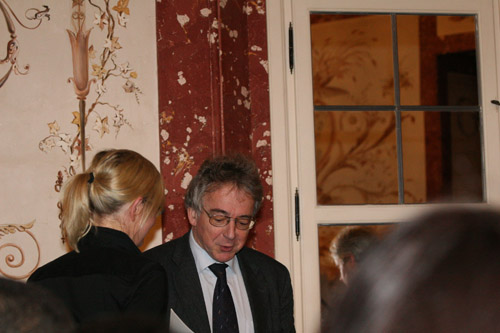
Fighting the war on poverty with high quality early childhood education programs is an issue discussed and supported by numerous contributors to החיפוש הגלובלי לחינוך סדרה. Researchers, educators and policy makers have argued that vital learning can and should begin before age 5. When schooling starts for poor children at kindergarten or first grade they have already missed out on vital opportunities to develop skills needed to help them thrive academically, socially, physically and emotionally in their early years of learning.
היום ב גלובל החיפוש לחינוך, it is our honor to share the views of Professor Dr. Wolfgang Schneider on pre-school learning and additional matters related to the German and other education systems.
DR. וולפגנג שניידר הוא כיום פרופסור לפסיכולוגיה במחלקה לפסיכולוגיה, האוניברסיטה וירצבורג, גרמניה. His research interests include the development of memory and metacognition, מחוננות ומומחיות, הפיתוח של קריאה ואיות, as well as the prevention of reading and math difficulties. He was Vice President and President of the German Psychological Society (2000-2004), וסגן הנשיא גם של האוניברסיטה וורצבורג (2004-2009). הוא עורך-שותף מחבר ושל כ 40 ספרים, כולל Memory Development between Two and Twenty, which he co-authored with Michael Pressley. He is currently President of the International Society for the Study of Behavioral Development (ISSBD).
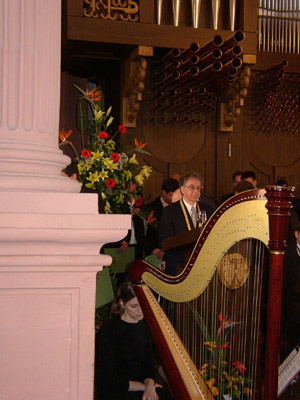
There are a number of prominent views in the US that pre-school education makes a significant difference in the success of children in primary school. מה הם המרכיבים החיוניים של החינוך הזה ומהי ההשפעה על התפתחות ילד? האם אתה מאמין זה יכול להיות השפעה משמעותית על פער ההישגים בין ילדים עשירים ועניים?
Early language skills have to be developed. This is something that the German government is trying to intensify at the moment. We have made some progress regarding the phonological training programs in our country. We also have evidence that training children in phonological awareness helps them to develop the first stages of reading and spelling in school. We have evidence regarding early math training programs too and there are a few rather effective approaches there.
So there has been evidence that early pre-school programs make a difference, particularly for kids at risk. We did a couple of studies with children at risk and compared their improvement with normally developed children. We found that children at risk really can catch up if they have training in the early years. And when they are able to move up to the same level as normal kindergarten kids, they seem to be able to develop well in school.
What is the nature of the kindergarten training programs that you designed and what impact has it had on the mental development of children? Are the programs equally as effective with affluent and poor?
We designed a popular training program with two components. One focuses on phonological awareness in both the broad and narrow sense. Phonological awareness in the broad sense would be something like rhyme identification or syllable segmentation. Phonological awareness in the narrow sense means identification of phonemes in syllables. We found it was possible to get German speaking kindergarten children to identify phonemes in syllables and words, and those kids who satisfied that criteria were able to acquire reading and spelling skills earlier than usual. We combined the phonological awareness training with letter-sound coordination training. And so for some frequently used letters, אנחנו מלמדים את הילדים איך הם מקושרים לפונמות. This helped the children pick up the letter phonemes training in school. We had control groups in our studies that did not receive phonological training but participated in the usual kindergarten program. Thus we were able to compare kids who were trained and kids who did not participate. We discovered that the trained kids had an advantage by the end of kindergarten and kept that advantage during their first years in school. It’s very important that there was a long lasting effect here. Particularly with kids who had poor initial skills.
Right now we are developing an early educational program for kindergarten children for all 16 states in Germany. We will finish our proposal at the end of 2012.
Do you think that the PISA test is an effective measure of the full range of mental aptitudes of students?
I don’t think it’s an effective measure of the full range of mental aptitudes. It does give you a good impression of 15-year-old students’ reading skills, math skills and their ability to cope in the science area, but we don’t get any evidence about their intellectual abilities. ב 2000 we included a measure of non-verbal intelligence in a German extension of the PISA study which compared performance among the 16 German states and which was based on a large sample of about 50,000 תלמידים. When we assessed the impact of intelligence on performance in math, reading and science, we figured out that non-verbal intelligence was a strong predictor in most of these tests.
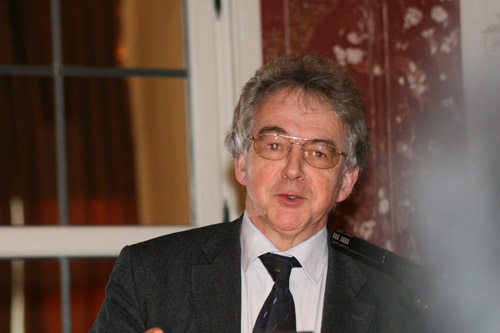
האם אתה חושב שבחלק מהמדינות, הוראה למבחן PISA כעת מתרחשת?
I think that this probably does happen and I think that is a problem. עם זאת, I also believe that the way the PISA organization process works makes it difficult. In Germany for example, schools are selected at random. And there is almost no chance for a school to escape once it has been selected. I suppose there could be a couple of schools in the sample that have practiced for the test but we don’t think that would apply to the entire sample.
Do you think that some countries have educational curricula that provide better preparation for the test than others? Does it surprise you that “grinder” countries like South Korea and less structured countries such as Finland both do very well on the test?
As to the impact of different educational systems on the results of the PISA test, it seems very difficult to come up with clear-cut conclusions. You have a diverse group of countries included in the PISA sample with different educational systems, so you have to be very careful when you compare. עם זאת, the achievement patterns observed for the various PISA samples that we’ve seen from 2000 ל 2009 seem to be rather consistent for most of the countries participating. The countries at the top for reading and math, such as Finland and the Asian countries, are famous for their superior curricula in these domains and their competent training programs. So their excellent performance does not seem to be surprising.
The Finnish educational system really focuses on all children, including the weak children, בכיתות. כתוצאה מכך, שונות ההישגים בילדים פיניים היא קטנות בהרבה מהשונות בילדים ברוב המדינות אחרות. אז פינלנד הוא מוצלח עם הבאת כל ילדיהם עד לרמה גבוהה, שמדינות רבות אחרות אינן משיגות.
כשאתה מסתכל על נהלי ההוראה והלמידה במדינה כמו דרום קוריאה, you see that there is a lot of drilling and practice and very heavy workloads on the students. This is something we do not have in Germany. So I think the quantity of instruction in South Korea makes a big difference here. In former times, Benjamin Bloom in the US already noticed that the quantity of instruction and the time given to reach a criterion is usually a good indicator of student outcomes.
What are the key strengths and weaknesses of the German educational system as you see it?
בגרמניה יש לנו תוכניות לימודים שונות ב 16 different states. A couple of states, כולל סקסוניה ובוואריה, seem to do very well and may even compare with the Finnish achievement scores. The teachers follow the curriculum pretty strictly, which seems to make an impact. We have systematic findings that show while some of our states perform very well others perform poorly. Each state has its own policy. המדיניות שונה הרבה, and the states are not able to agree on a common curriculum. Our federal ministry of education has tried to change that but it is difficult as our law states that education must be linked to the state policy.
What is the mix of arts in the usual curriculum in Germany? How do you the see role of the arts in primary and secondary education?
I believe the arts are underestimated in our system. Whenever teachers have to cut hours in a curriculum, the arts get cut first. We have to change that. I believe the arts are important. I think we should start an arts education at the beginning of elementary school, which is not the case now. The major argument against the arts is always that kids shouldn’t do too much in the early years of their education where the emphasis must be on reading, writing and math. Thirty years ago this was not the case as music education started earlier. Now that has changed and it is not a good development.
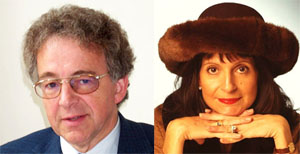
Photos courtesy of Professor Dr. וולפגנג שניידר.
בגלובל החיפוש לחינוך, להצטרף אליי ולמנהיגי מחשבה מוכרת בעולם כולל סר מייקל ברבר (בריטניה), DR. מיכאל בלוק (ארה"ב), DR. ליאון בוטשטיין (ארה"ב), פרופסור קליי כריסטנסן (ארה"ב), DR. לינדה דרלינג-Hammond (ארה"ב), DR. Madhav אוון (הודו), פרופ 'מיכאל Fullan (קנדה), פרופ 'הווארד גרדנר (ארה"ב), פרופ 'איבון הלמן (הולנד), פרופ 'קריסטין Helstad (נורווגיה), ז'אן הנדריקסון (ארה"ב), פרופ 'רוז Hipkins (ניו זילנד), פרופ 'קורנליה הוגלנד (קנדה), גברת. שנטל קאופמן (בלגיה), DR. Eija Kauppinen (פינלנד), מזכיר המדינה Tapio Kosunen (פינלנד), פרופ 'דומיניק לפונטיין (בלגיה), פרופ 'יו לאודר (בריטניה), פרופ 'בן לוין (קנדה), פרופ 'בארי McGaw (אוסטרליה), שיב נדאר (הודו), פרופ 'R. נטריגין (הודו), DR. PAK NG (סינגפור), DR. דניז אפיפיור (ארה"ב), שרידהר ךאג'גופלן (הודו), DR. דיאן ראוויטש (ארה"ב), סר קן רובינסון (בריטניה), פרופ Pasi Sahlberg (פינלנד), אנדריאס שלייכר (PISA, OECD), DR. אנתוני סלדון (בריטניה), DR. דוד שפר (ארה"ב), DR. קירסטן Immersive Are (נורווגיה), קנצלר סטיבן ספאן (ארה"ב), איב Theze (Lycee Francais ארה"ב), פרופ 'צ'רלס Ungerleider (קנדה), פרופ 'טוני וגנר (ארה"ב), סר דייוויד ווטסון (בריטניה), פרופסור דילן Wiliam (בריטניה), DR. מארק Wormald (בריטניה), פרופ 'תיאו Wubbels (הולנד), פרופ 'מייקל יאנג (בריטניה), ופרופ 'Minxuan ג'אנג (סין) כפי שהם לחקור שאלות חינוך תמונה הגדולות שכל המדינות מתמודדות היום. גלובל החיפוש לחינוך עמוד קהילה
C. M. רובין הוא המחבר שתי סדרות מקוונות רבים קוראות שלהיא קיבלה 2011 הפרס אפטון סינקלר, “גלובל החיפוש לחינוך” ו “איך וויל אנחנו קראו?” היא גם מחברם של שלושה ספרים רבי מכר, כולל אליס בארץ הפלאות Real.


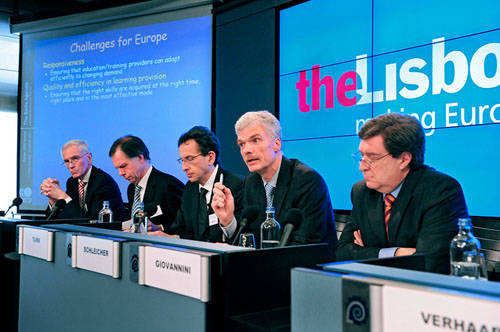
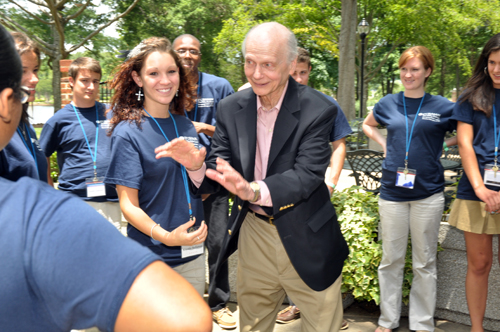


תגובות אחרונות